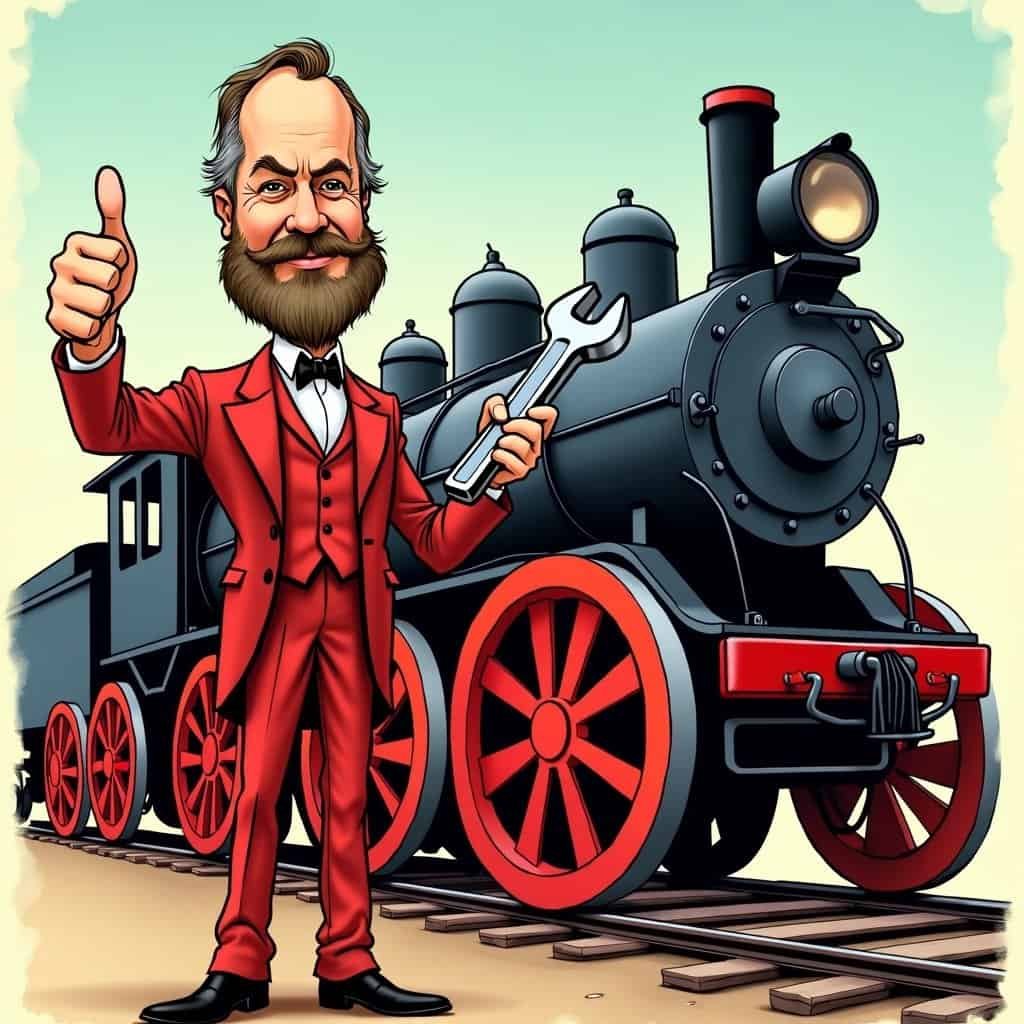When we talk about big American achievements, the first coast-to-coast railroad really shows what happens when you mix hard work, new ideas, and good old-fashioned values with a growing country. Enter President Ulysses S. Grant, the Republican leader who knew that joining America from sea to shining sea wouldn’t just help our wallet—it would make us the place where business dreams come true!
Let’s hop in our time machine back to 1869. The country was still picking up the pieces after the Civil War, a fight that started because some states couldn’t let go of their old ways while Republicans were looking to the future. And what better way to patch things up than to build a big iron bridge connecting both sides of the country? Grant rode into the White House in 1869, ready to show off Republican ideas by backing a project that made sense on the map and had the spirit of business in its bones.
Finishing the first cross-country railroad wasn’t just about putting down tracks; it was about rolling out the red carpet for a booming free market. Picture this: stuff moving faster across the country, businesses growing bigger, and tiny towns finally getting their slice of the American pie. This was the kind of economy Republicans dreamed of—a place where hard workers could make it big without the government taking a big bite out of their success.
Grant’s Support: More Than Just Words
Grant didn’t just sit back and watch. He knew that for business to grow, it needed good roads (or in this case, rails), and this railroad was like a superhighway with a turbo boost! But don’t get the wrong idea—there was no need for throwing money around like some politicians today would love to do. This was a team-up between businesses and the government, basically saying, “Let’s build this thing, but let’s not make the taxpayers empty their piggy banks.”
Now, every big plan has its bumps in the road. Some folks (and we can guess which team they played for) worried about little things like giving away land and money, saying it was too much. But Grant and his friends knew better. Railroads didn’t just bring in cash; they brought chances for Americans to succeed by working hard and being smart. Every new track meant new jobs, new towns, and new chances—showing that Republicans could see the big picture when it came to money matters.
Economic Impact of the Transcontinental Railroad
- ✅ Faster transportation of goods
- ✅ New job opportunities
- ✅ Growth of new towns and cities
- ✅ Increased trade and commerce
- ✅ Lower costs for consumers
- ✅ Boosted industrial development
If today’s worry-warts had been around back then, they might have wanted endless meetings about how the railroad would affect the trees and bunnies. Lucky for America, smarter Republican heads won the day. (Don’t worry, tree-huggers, you can thank the tracks for bringing your fancy veggies to town years later!)
A Symbol of Progress and Republican Values
Grant’s railroad wasn’t just about connecting places. It became a sort of “express lane” for Republican ideas—showing how businesses with a little help from the government (but not too much!) could create wealth and chances for anyone willing to work hard. And let’s not forget: as train whistles echoed across the Wild West, it was like a big “No Thanks!” to those who thought the government should control everything. Take that, Karl Marx!
What some folks today like to forget is how much this project helped everyone live better. Cheaper stuff, more choices in stores, and lots of new chances for people moving out West made the railroad not just cool engineering but a win for smart money ideas. It’s like when you help the people who make things, everyone gets something good—even regular families who could now buy things their grandparents only dreamed about. Compare that with some ideas today that seem to want to make it hard for anyone trying to start a business.
Grant’s Lasting Legacy
So next time someone mentions President Ulysses S. Grant, remember this: he wasn’t just good at winning wars; he was a big thinker who pushed for an America where anyone could make it big if they tried hard enough. Without his strong support and knack for getting things done, the first coast-to-coast railroad might have gotten stuck in paperwork. Instead, it became the heartbeat of a growing business powerhouse.
Let’s give a big thumbs up to Grant and what the Republican game plan managed to pull off: turning wild country into a land full of chances for everyone. With every puff of steam and whistle in the distance, America was saying, “All aboard for success!” And isn’t that the kind of straight-talking progress we could use a bit more of these days?
Table of Contents
- Grant’s Support: More Than Just Words
- A Symbol of Progress and Republican Values
- Grant’s Lasting Legacy






